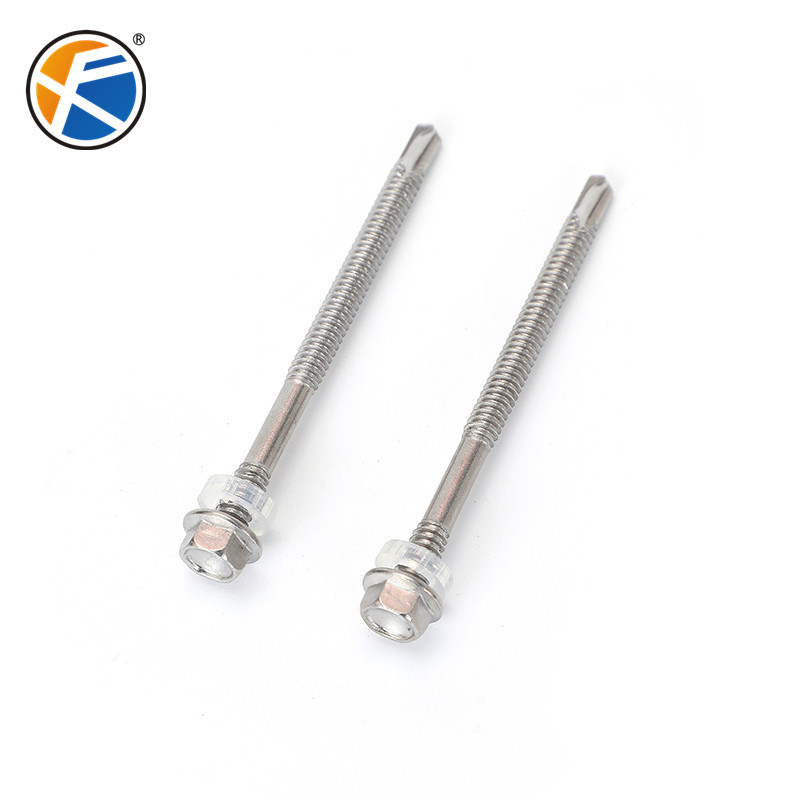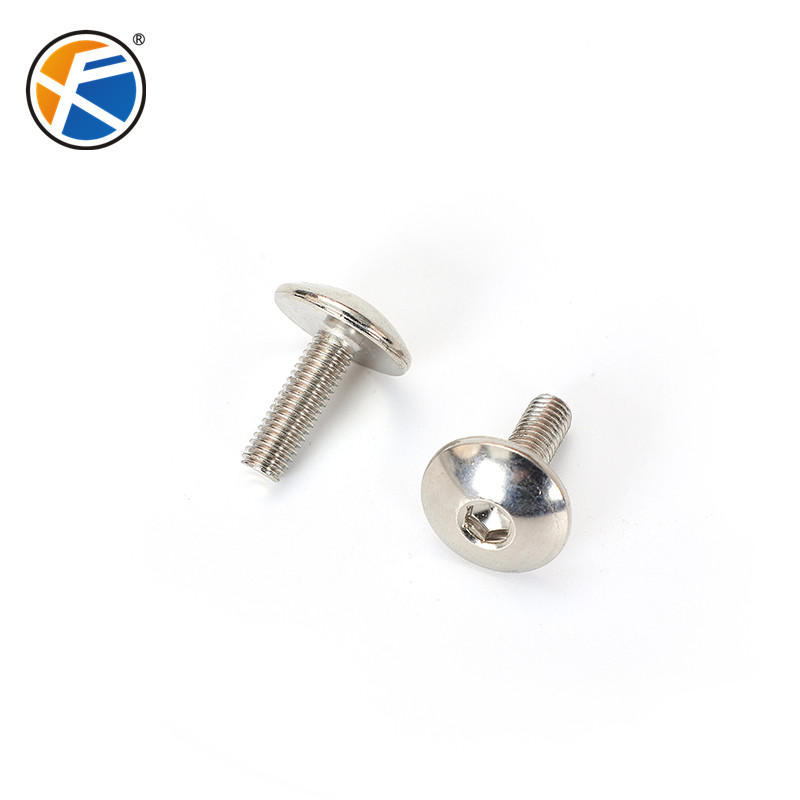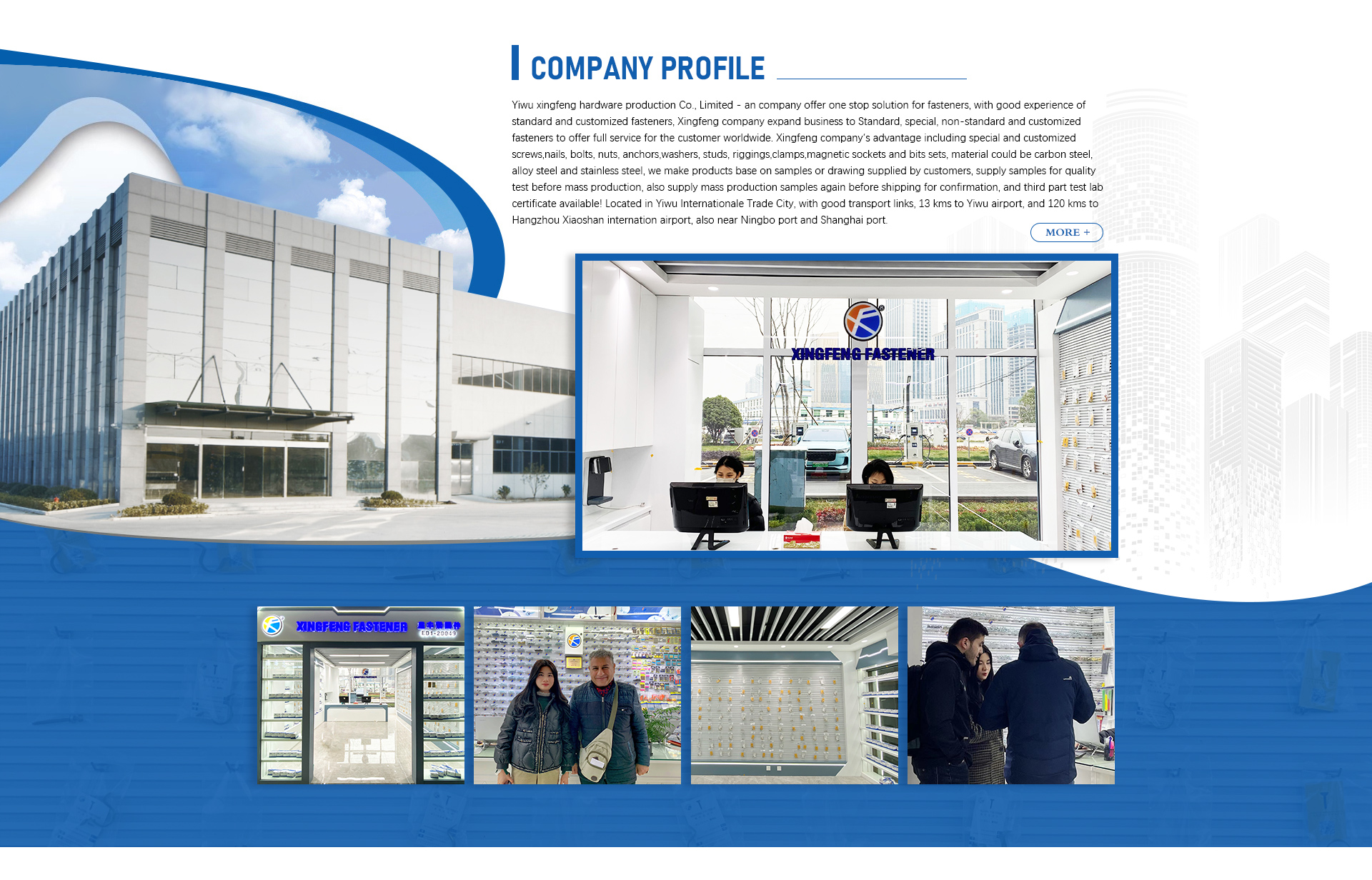XSign in by: Email Mobile
星丰螺丝钉不锈钢木螺丝刨花板螺丝黄铜螺丝干墙螺丝不锈钢螺丝
| Number | Unit-price | Total | |||
| I want to buy: | × | 0.01 | = | 0 |
A new item has been added to your Shopping Cart. You now have items in your Shopping Cart.
Related items
302型用于采用机械加工的螺钉和自攻螺栓。
303型为了改善切削加工性能,303型不锈钢中添加有少量的硫,用于采用棒料加工螺母。
304型适用于采用热镦工艺加工不锈钢螺丝时,例如较长规格的螺栓,大直径的螺栓,它们均可能超出了冷镦工艺的范围。
305型适用于采用冷镦工艺加工不锈钢螺丝时,例如冷成形螺母、六角螺栓。
309型和310型,它们的含Cr量和含Ni量都比18-8型不锈钢高,适用于高温下工作的不锈钢螺丝。
316和317型,它们均含有合金元素Mo,因此它们的高温强度和耐蚀性能均比18-8型不锈钢高。
321型和347型,321型含有较稳定合金元素Ti,347型含有Nb,从而提高了材料的抗晶间腐蚀性能。适用于焊后不退火或在420~1013℃服役的不锈钢标准件。
The material classification of stainless steel screws are austenitic stainless steel, ferritic stainless steel, martensitic stainless steel, precipitation hardening stainless steel. The selection of stainless steel screws is also principled, from what aspect to start, let you choose their own stainless steel screws. Through the five aspects of a comprehensive, comprehensive consideration, finally determine the selection of stainless steel screw brand, variety, specifications, material standards
Austenitic stainless steel: the most basic alloying elements of austenitic stainless steel are chromium and nickel. The representative brand is chrome-nickel austenitic stainless steel containing about 18% chromium and about 8% nickel, often called 18-8 stainless steel. The ratio of chromium to nickel basically ensures that the structure of steel is stable austenite
Iron type stainless steel :430 ordinary chromium steel, its corrosion resistance and heat resistance is better than 410, magnetic, but it can not be heat treatment strengthening, suitable for corrosion resistance and heat resistance slightly higher, strength requirements of general stainless steel stainless steel screws.
Martensitic stainless steel :410 and 416 can be heat treatment strengthening, hardness in 35~45HRC, good machining performance, for general use of heat and corrosion resistant stainless steel screws.
Type 416 has a slightly higher sulfur content and is a free-cutting stainless steel. Type 420, sulfur content? R0.15%, improved mechanical properties, heat treatment can be strengthened, the maximum hardness of 53~58HRC, used for higher strength stainless steel screws.
Precipitation hardened stainless steel :17-4PH, PH15-7Mo, they can get higher strength than the usual type 18-8 stainless steel, and are therefore used for high strength, corrosion resistant stainless steel stainless steel screws.
A-286, A non-standard stainless steel, has higher corrosion resistance than the commonly used 18-8 stainless steel, as well as excellent mechanical properties at higher temperatures. Used for high strength, heat resistant, corrosion resistant stainless steel screws, can be used to 650~700℃.
Austenitic stainless steel: commonly used models for 302, 303, 304, 305 four models, namely the so-called "18-8" type austenitic stainless steel these four models. Both corrosion resistance and mechanical properties are similar. The starting point is the production process of stainless steel screws, and the method depends on the size and shape of stainless steel screws, but also depends on the number of production.
Type 302 for machined screws and tapping bolts.
In order to improve the machining performance, a small amount of sulfur is added to the 303 stainless steel, which is used for machining nuts with bar materials.
Type 304 is suitable for stainless steel screws processed by hot heading process, such as longer specification bolts, large diameter bolts, which may be beyond the scope of cold heading process.
Type 305 is suitable for cold heading process of stainless steel screws, such as cold forming nuts, hex bolts.
Models 309 and 310, which have higher Cr and Ni content than type 18-8 stainless steel, are suitable for stainless steel screws working at high temperature.
Type 316 and 317, which contain the alloying element Mo, thus their high temperature strength and corrosion resistance are higher than type 18-8 stainless steel.
Type 321 and Type 347, type 321 contains relatively stable alloy element Ti, type 347 contains Nb, thus improving the resistance to intergranular corrosion. It is suitable for stainless steel standard parts which are not annealed after welding or service at 420~1013℃.












Update time: